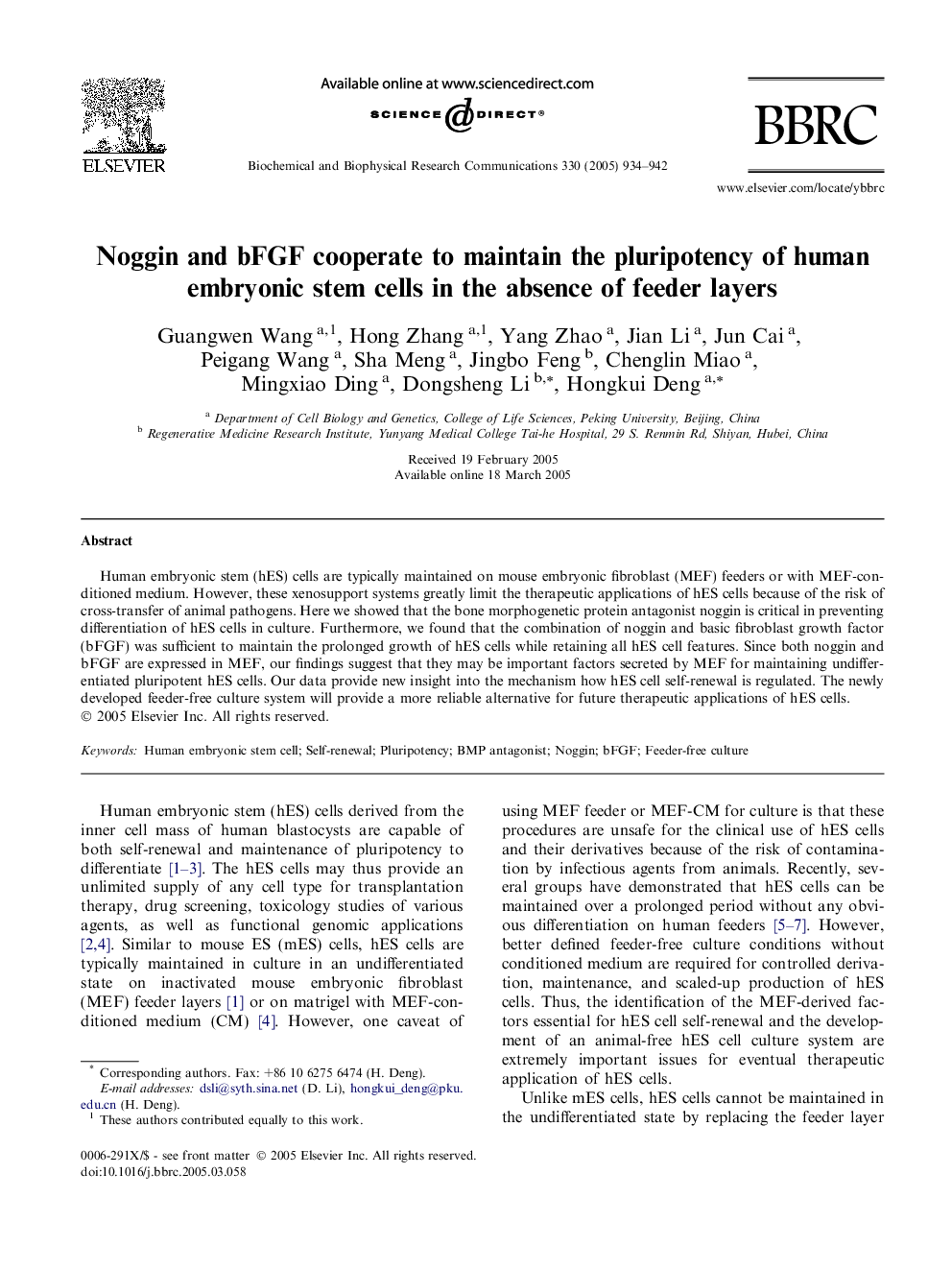| Article ID | Journal | Published Year | Pages | File Type |
|---|---|---|---|---|
| 10770311 | Biochemical and Biophysical Research Communications | 2005 | 9 Pages |
Abstract
Human embryonic stem (hES) cells are typically maintained on mouse embryonic fibroblast (MEF) feeders or with MEF-conditioned medium. However, these xenosupport systems greatly limit the therapeutic applications of hES cells because of the risk of cross-transfer of animal pathogens. Here we showed that the bone morphogenetic protein antagonist noggin is critical in preventing differentiation of hES cells in culture. Furthermore, we found that the combination of noggin and basic fibroblast growth factor (bFGF) was sufficient to maintain the prolonged growth of hES cells while retaining all hES cell features. Since both noggin and bFGF are expressed in MEF, our findings suggest that they may be important factors secreted by MEF for maintaining undifferentiated pluripotent hES cells. Our data provide new insight into the mechanism how hES cell self-renewal is regulated. The newly developed feeder-free culture system will provide a more reliable alternative for future therapeutic applications of hES cells.
Keywords
Related Topics
Life Sciences
Biochemistry, Genetics and Molecular Biology
Biochemistry
Authors
Guangwen Wang, Hong Zhang, Yang Zhao, Jian Li, Jun Cai, Peigang Wang, Sha Meng, Jingbo Feng, Chenglin Miao, Mingxiao Ding, Dongsheng Li, Hongkui Deng,
